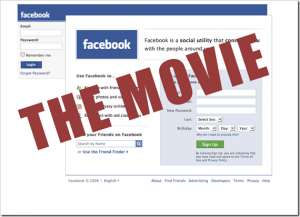Have you ever put something up on the Internet and later regretted it? Mark Zuckerberg did and turned it into a multibillion-dollar company.
Perhaps the most hyped movie to come out since “Inception,” “The Social Network” delivers on every level. It has been called the Facebook movie, and there’s no doubt it tells the story of how the website everyone loves to waste time on originated.
More importantly, “The Social Network” is a human drama focusing on Facebook’s creator Zuckerberg (Jesse Eisenberg) and how he turned a drunken night of blogging into the biggest cultural phenomenon of the decade.
If watching a bunch of computer science majors talk about coding and algorithms doesn’t strike you as interesting, fear not. “The Social Network” delivers entertainment in truckloads. The movie moves fast, talks fast, may induce frequent laughter – and when it’s all said and done, it will leave you wanting more. To say this movie is fascinating is an understatement.
The world of Harvard University and its inhabitants as portrayed in the film are all at once engaging and repulsive, hilarious and irritating. In other words, the characters are completely human, and the acting is believable in a big way.
Fresh from his “Zombieland” stint, Eisenberg drives the movie. It’s clear that Zuckerberg is a pretty unique guy from the first few scenes. He’s blunt, conniving, socially challenged and, of course, a genius. After his girlfriend dumps him for sticking his foot in his mouth one too many times, he returns to his dorm room to bang out a series of scathing posts on his blog.
In the middle of his digital tirade, Zuckerberg gets the sudden urge to hack into the campus network and steal photographs of the entire female student body. In a single night, Zuckerberg crashes the Harvard system with his new webpage “Face Mash,” and is quickly dragged before a board of less than amused academic types. He instantly becomes despised by every girl on campus, while gaining attention from the exclusive clubs he so desperately wants to be accepted by.
In one of these clubs, Zuckerberg meets the Winklevoss twins, uncannily played by Armie Hammer. The twins tell him about their plan for a new social networking site exclusive to college students, and Zuckerberg immediately sets out to steal it out from under their noses.
The film looks great in a cold and sinister way as Zuckerberg treads his way through the snow-covered campus in flip-flops. If you’re familiar with previous David Fincher films like “Seven,” “Fight Club,” or “Zodiac” you won’t be surprised by the settings of smoke-filled dorm rooms and shadowy clubhouses.
Keyboard rhythms from Trent Reznor are at times haunting and even comical as in the boat racing scene. A snappy script scribed by Aaron Sorkin may take some time to get used to, but the flowing dialogue is so consistent that it is easy to get on board with the never-ending barrage of wit. It turns out the whole film is actually a series of flashbacks coinciding with scenes of Zuckerberg’s testimony to a room full of lawyers and enemies. Best friend and Facebook co-founder Eduardo Saverin (Andrew Garfield) was also in that room, and it soon becomes clear just how far Zuckerberg is willing to go to see his precious site succeed.
The language occasionally gets offensive, along with the standard drug and sex references you’d come to expect from a PG-13 movie about college. You may have also heard that Justin Timberlake is in the movie, but you won’t see him until after the first hour.
Nevertheless, his portrayal of Napster creator Sean Parker almost steals the show. Indeed, Parker’s intentions may be to steal more than that, much to Saverin’s disappointment. Bill Gates also appears as himself for good measure in one of the more humorous moments.
As “The Social Network” nears its conclusion, the film takes a darker turn towards betrayal and regret. Greed and paranoia begin to get the better of each character, and the writing on the wall becomes clearer as the fates of the would-be digital tycoons are revealed.
Zuckerberg created an empire based on people’s desire for connection – but in the end, he finds that he can’t connect with anyone. Fortunately, “The Social Network” will be able to do what he could not.







